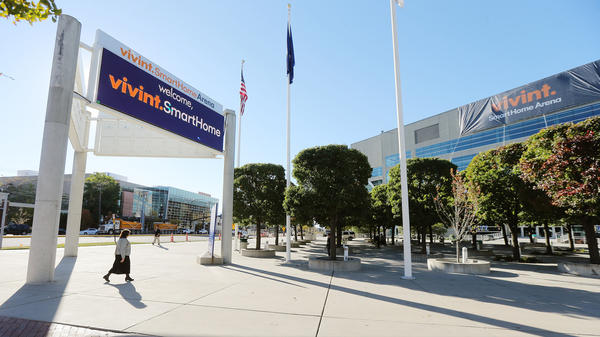Blog Post
Insight: Utah's threshold economy breaks through
By: Natalie Gochnour
Originally published in the Deseret News
The Utah Jazz experienced a breakthrough last year when the franchise traded Enes Kanter and promoted Rudy Gobert to the starting center position. The Jazz have played better basketball ever since. The trade created an inflection point that produced improved chemistry and defense. The young team passed a threshold.
The Utah economy may be passing through a similar threshold and, like the Jazz, is competing at a higher level. The state has grown and invested. In the process, we’ve traded away our small size and are shedding our insular reputation. In a very real way we’ve been discovered.
The narrative works like this: Beginning just before the 2002 Olympic Winter Games and continuing today, Utah invested mightily in its future. We rebuilt our freeways, invested in regional rail, and are in the process of building a completely new airport. During this period, we also built new health care facilities, schools, high-rises, a signature mixed-use development in the core of our urban center, and a nearly completed performing arts center to attract more Broadway shows.
What we’ve done in our valleys we’ve matched in our mountains. Park City leads the way with the largest ski resort improvement project in the history of American skiing. It invested $50 million this year to link Park City and what was previously known as Canyons. Park City is now the second-largest ski resort in North America and largest in the country. Many of Utah’s other ski areas have also invested significantly in new facilities.
These and other investments, coupled with Utah’s continuing population growth, have created what I call a “threshold economy.” It’s the idea that at some point economies reach a threshold size and level of assets that attract previously unavailable growth and opportunity. It’s a type of economic coming of age.
There are many indicators of Utah’s threshold economy. Sought-after retailers such as H&M, Ikea, Crate and Barrel, and Trader Joe’s now call Utah home. Marquee companies such as Goldman Sachs, Adobe and Wells Fargo have large regional operations here. Dynamic urban living has taken root in downtown Salt Lake City, where a full-service grocery store thrives.
Other breakthroughs like the University of Utah’s inclusion in the Pac-12 and Delta Air Lines’ continuing investment in Salt Lake City contribute to Utah’s threshold growth. The Utes continue to attract significant national media attention, and Delta Air Lines plans to offer nonstop service from Salt Lake City to London in May 2016, which the state has sought for more than a decade.
Utah has also reached a threshold when it comes to national political leadership credentials. Gov. Gary Herbert chairs the powerful National Governors Association, Mayor Ralph Becker chairs the National League of Cities, and Sen. Curt Bramble chairs the National Conference of State Legislatures. Sen. Orrin Hatch stands third in the presidential line of succession and chairs the influential Senate Committee on Finance. These are remarkable political feats for an interior Western state.
Last month Utah reached 3 million people. This milestone was a long time coming, but it compounds over time. It took 119 years from the time the pioneers entered Salt Lake Valley to reach 1 million people, 29 more years to reach 2 million and 20 more years to reach 3 million. State analysts project it will only take 16 more years to reach 4 million. There are now 18 states smaller than Utah, a fact that surprises many Utahns.
Like improvements to the Utah Jazz, Utah’s threshold economy has taken a lot of work and still requires fine-tuning. We need to keep improving public and higher education and make meaningful progress on our air-quality challenges, among other issues. But, all in all, the Utah economy is breaking through in remarkable ways. And, like the Utah Jazz, it’s going to be fun to watch the Utah economy reach its next threshold.
Natalie Gochnour is the associate dean of the David Eccles School of Business and director of the Kem C. Gardner Policy Institute.





